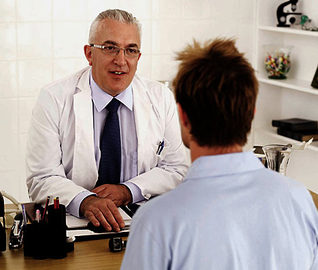Introduction

After digesting food and water, the body emits the byproducts as waste or urine. The bladder serves as the reservoir used to store urine in the human body. Some individuals learn that they have developed bladder cancer. Cells make up the tissues and organs in the body. Cells go through a process of division and old cells replace the new. The cell grow until a certain point before the growth shuts off. With cancerous cells the signal does not occur and the cells continue to grow. Various symptoms of bladder cancer may be unsettling. This can prompt a visit with a physician. Before making a diagnosis, the medical professional with take a medical history and conduct a thorough examination. Some screening tests may be perform to be sure of the diagnosis. The outcome can vary depending on certain factors such a general health, family history and when the cancer is discovered. The prognosis often depends on these factors as well as the selected treatment and cancer. With effective treatment, bladder cancer can be managed.
Symptoms

The symptoms of bladder cancer are numerous. Affected patients often experience a feeling of fatigue. As their body immune system attempts to combat the cancer raging within, the process is taxing. This contributes to the tiredness and exhaustion patients report. After going to the bathroom, sometimes blood appears in the urine. This can be frightening. Pain in the abdomen and unexplained weight loss are additional signs. Since the bladder holds the urine, patients may feel a more urgent need to pee. They may go more frequently or may even have incontinence or a leaking of urine. These symptoms alone are not definitive. This is why a physical examination by a trained doctor is necessary. Only this can help identify whether the cause is bladder cancer or some other disease.
This type of cancer exists in several stages. It ranges from stage 0 to stage four. Cells fall into one of two categories. This is either benign or non cancerous cells and malignant or cancerous cells. The determining treatment and cancer type are related. Benign growths do not typically grow back. Usually the growths do not pose a threat to life. Malignant growths grow back, sometimes aggressively. Without treatment there can be a real danger and threat to life. Additionally malignant tumors may migrate to other organs and parts of the body.
Treatment
Doctors must determine the proper treatment and cancer therapy approach. This often comes in the form of surgery, radiation, drug therapy or chemotherapy. Sometimes physicians combine multiple methods for the best and most appropriate treatment. Sometimes the physician refers the patient to a specialist in cancer therapy.
One of the more common therapies used is surgery. It can be multiple types of surgery depending on the exact area of the tumor. A TUR or trans-urethral resection surgery occurs to treat earlier bladder cancer cases. The patient receives general anesthesia and the doctor operates using a microscope called a cytoscope to view the bladder going in trough the urethra or the opening to the bladder. The doctor cuts away the cancerous bladder tissue.
Surgical intervention, other treatments and cancer go hand in hand. The methods are often complimentary and can be tailored to meet the needs of the patient.
Tips
Do not ignore any symptoms. Schedule an appointment as early as possible. Early intervention and screen is often the key to successful treatment. Make note of when symptoms apppear.